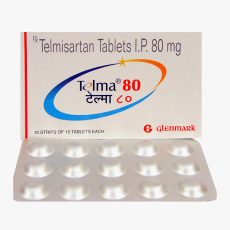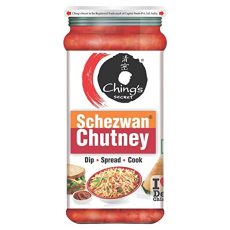 [This weekly review has been co-authored with SpicyIP interns Gaurangi Kapoor and Ishant Jain.]
[This weekly review has been co-authored with SpicyIP interns Gaurangi Kapoor and Ishant Jain.]
January’s end is just around the corner and what an eventful start it has been to the year! In our previous weekly reviews (here, here and here) we have collectively summarized 16 blog posts, 37 case summaries and other national and international IP developments. Not to forget – we started the year with our round up of the biggest IP developments of 2022.
In the last weekly review of the month, here are our summaries of the 4 blogposts, 6 court orders and other national and international IP developments.
Highlights of the Week
SpicyIP Tidbit: Supreme Court translates 1091 judgments into regional languages on Republic Day

Image by Freepik
In a move assuring better and widespread access to law, the Chief Justice of India announced that the Supreme Court will release translated copies of 1091 judgements from English to regional languages, on Republic Day. In the post around this announcement, Praharsh discusses the interface and user-friendliness of the platform and highlights the difference between the feature available in the e-SCR website with the one available on the Supreme Court website.
Future of mRNA and win-win for all: Why we need the government to disclose its collaboration agreement
Underscoring the public health benefits that saRNA vaccines entails and the Govt’s large investment into it, Aparajita takes on non-disclosure and trade secret related issues surrounding the platform. She highlights how the non-disclosure of the government collaboration agreements with regard to the platform is bad overall for public health efforts.
into it, Aparajita takes on non-disclosure and trade secret related issues surrounding the platform. She highlights how the non-disclosure of the government collaboration agreements with regard to the platform is bad overall for public health efforts.
Other posts
SpicyIP Tidbit: Delhi HC passes ex parte injunction in favour of Glenmark in ‘TELMA / TELMA-AM’ counterfeiting claim
 Highlighting the issue of significant rise of spurious drugs in the market, Namratha discusses the order from the Delhi High Court, wherein the court reprimanded the Plaintiff for not approaching it earlier and remarking that an “injunction, at this stage, is perhaps too little too late.”
Highlighting the issue of significant rise of spurious drugs in the market, Namratha discusses the order from the Delhi High Court, wherein the court reprimanded the Plaintiff for not approaching it earlier and remarking that an “injunction, at this stage, is perhaps too little too late.”
Rooh Afza v. Dil Afza Part II: Meaning Found in Trademark Protection
Hamdard Foundation and Sadar Labs battle it out again in the Delhi High Court over whether Sadar’s Dil Afza infringes Hamdard’s trademark in Rooh Afza. This time, a division bench sides with Hamdard stating that Dil Afza is not substantially dissimilar from Rooh Afza. Analyzing the order, Namratha looks into the application of the test of similarity and anti-dissection rule and the difference between the rationale of the orders from the Single Judge and the Division Bench of the court.
Sadar’s Dil Afza infringes Hamdard’s trademark in Rooh Afza. This time, a division bench sides with Hamdard stating that Dil Afza is not substantially dissimilar from Rooh Afza. Analyzing the order, Namratha looks into the application of the test of similarity and anti-dissection rule and the difference between the rationale of the orders from the Single Judge and the Division Bench of the court.
Case Summaries
Delhi High Court clarifies that an order rejecting an application u/s 11(1)(b) of the Act must necessarily contain a finding on likelihood of confusion.
Allowing an appeal against the impugned order, Delhi High Court clarified that the order rejecting an application under Section 11(1)(b) of the Trademarks Act should necessarily contain a finding on likelihood of confusion owing to similarity between the competing marks. The court further said that such a finding should be based on examination of the relevant facts and “cannot merely be chanted as a mantra”. In light thereof, the court remanded the matter back to the Registrar for reconsideration.
Delhi High Court asserts that a summary judgement cannot suo moto be passed on issues which aren’t raised by any parties.
Case: Surya Food & Agro Ltd vs Om Traders & Anr on 20 January, 2023 (Delhi High Court)
Allowing an appeal against an order of a single judge bench, a division bench of Delhi High Court addressed the question whether a summary judgement can be passed without striking any issues or without permitting the parties to lead any evidence? Responding in the negative, the Court held that procedural scheme under the CPC with regard to commercial disputes is unambiguous and proper procedure prescribed under Order XIII-A is to be followed. The court further clarified that a summary judgement cannot suo moto be passed on issues which neither a party has asserted nor raised for adjudication.
addressed the question whether a summary judgement can be passed without striking any issues or without permitting the parties to lead any evidence? Responding in the negative, the Court held that procedural scheme under the CPC with regard to commercial disputes is unambiguous and proper procedure prescribed under Order XIII-A is to be followed. The court further clarified that a summary judgement cannot suo moto be passed on issues which neither a party has asserted nor raised for adjudication.
Supreme Court refused to intervene in the matter of royalty rate revision as per the statutory licensing scheme under Section 31 D of the Copyright Act.
The Supreme Court disposed of a Special Leave Petition challenging the interlocutory order passed by the Single Judge of the Delhi High Court in the ongoing revision of royalty rates of sound recordings and underlying works. The court did not express any opinion on the merits of the case considering that an appeal is pending at the Division Bench of Delhi High Court on the issue. The Supreme Court however requested the Division Bench of Delhi High Court to take up the matter at the earliest for final adjudication and clarified that in the meantime, the impugned interlocutory order may not be treated as a precedent.
Delhi High Court to determine on whether use of sound recording will fall under the ambit of the exception prescribed in Section 52(1)(za) or not.
Delhi High Court listed the matter on February 2, 2023 subject to the order in CS(Comm) 74/2021, whereby a single judge bench of Justice Hari Shankar will decide on whether use of sound recordings for wedding festivities will fall under the ambit of fair dealing under Section 52(1)(za) or not.
whereby a single judge bench of Justice Hari Shankar will decide on whether use of sound recordings for wedding festivities will fall under the ambit of fair dealing under Section 52(1)(za) or not.
Schezwan Chutney’ is not descriptive and has acquired secondary meaning, rules Division Bench of Delhi High Court.
Case: Capital Foods Private Limited vs Radiant Indus Chem Pvt. Ltd on 25 January, 2023 (Delhi High Court)
A division bench of Delhi High Court stayed the order passed by the single judge whereby it had rejected the request for interim injunction against the Defendant for using the mark ‘Schezwan Chutney.’ Contrary to the opinion of the Single judge, the court held that the Plaintiff’s mark has acquired distinctiveness keeping in mind the sales figures and expenses incurred in advertisements. Furthermore, upon comparing the competing marks, the court held that the intent of the Defendant was to ride on the goodwill of the Plaintiff as the stylization, colour combination, get-up trade dress and copyrights in its advertising material has been blindly copied from the appellant-plaintiff.
rejected the request for interim injunction against the Defendant for using the mark ‘Schezwan Chutney.’ Contrary to the opinion of the Single judge, the court held that the Plaintiff’s mark has acquired distinctiveness keeping in mind the sales figures and expenses incurred in advertisements. Furthermore, upon comparing the competing marks, the court held that the intent of the Defendant was to ride on the goodwill of the Plaintiff as the stylization, colour combination, get-up trade dress and copyrights in its advertising material has been blindly copied from the appellant-plaintiff.
Delhi High court adopts a broader interpretation to Section 59 of the Patents Act.
Case: Allergan Inc v. Controller of Patent on 20 January , 2023 (Delhi High Court)
In an order interpreting the terms of Section 59 of the Patent Act, the Delhi High Court explained that the section compares the amended claim with the scope of the pre-amended claim and thus the claims and complete specification have to be read together. The court therefore set aside the order of the Respondent that had rejected the patent application on the ground that the amended claims were not within the scope of the pre-amended claims, even if they are disclosed in the complete specifications. In the present case the pre amended claims were for method of treatment whereas the claim was amended broadly to include the product/ composition. The court in this regard held “particularly in a case such as this, in which the pre-amended claim was for the method of using certain implants for treating ocular ailments, and all details of the said implants were forthcoming in the complete specifications in the pre-amended claims, and the amendment was only to substitute the method of using the implants with the implants themselves, it would be a travesty, in my opinion, to shut out the appellant from seeking a patent in respect of the implants merely on the ground that the amendment was not permissible under Section 59(1).”
Other IP Developments
- Tata stops Porsche from using ‘Safari’ moniker on 911 Dakar.

- Delhi HC prohibits unauthorised recording, sharing, live streaming of court proceedings.
- AICTE: With the creative common license, study materials will be provided to students abroad.
- ‘Yokoso’ deceptively similar to ‘Yoko’, says Bombay HC, restrains Pune eatery in sizzlers’ trademarks row.
- Bharat Biotech founder bats for incentives, tax breaks for patented products, innovation.
- India’s dream of ‘techade’ will be fulfilled by innovators, their patents: PM Modi
- Final hearing in J&J’s TB drug ends, verdict likely in a month.
- Rajinikanth issues statement over the commercial utilization of his personality, image, voice; threatens of legal action.
International Developments
